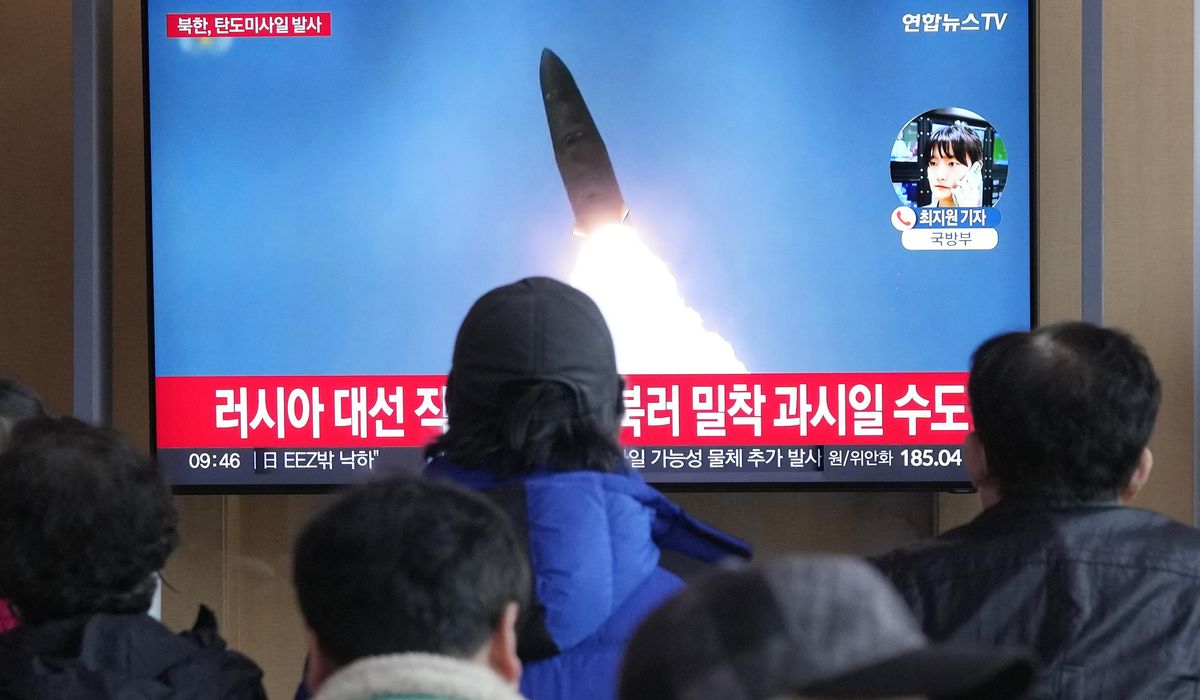


SEOUL, South Korea — North Korea test-fired a trio of short-range ballistic missiles into the Sea of Japan on Monday, a provocation coming as U.S. Secretary of State Antony Blinken appeared in South Korea to partake in the third Summit for Democracy — a Biden administration initiative that Seoul is hosting this week.
Mr. Blinken made no explicit mention of North Korea in remarks as the summit got underway in Seoul. He told an audience of dignitaries that democracies in the region and beyond are determined to stand together to “deliver a safer, healthier, more prosperous, more inclusive future for our people and for people around the world.”
The secretary of state focused the brunt of his remarks on the threat posed by divisive “disinformation” spread by nondemocratic powers including China and Russia.
He cited a recent State Department report “detailing how the Chinese Government has invested billions of dollars to spread propaganda and twist the global information environment … buying cable TV platforms in Africa and excluding international news channels from subscription packages, or using local subsidiaries to surreptitiously purchase media companies in Southeast Asia — which then run heavily pro-[China] news.”
North Korea‘s missile launches, meanwhile, come just days after the U.S. and South Korea completed a round of joint military drills.
The launches suggested little shift in the status quo of brinksmanship between North Korea on one side and the U.S., South Korea and Japan on the other.
Analysts say the failure of the U.S. and its Japanese and South Korean allies to halt North Korea’s weapons of mass destruction programs shows a lack of leverage. With no economic ties, no diplomatic ties, no political ties and few channels of communication, democracies have minimal ability to change heavily sanctioned Pyongyang’s behaviors, they say.
The result finds Washington, Seoul and Tokyo relying on military deterrence.
North Korea routinely lambasts annual U.S.-South Korea joint drills, which take place every spring, calling them invasion preparation. Pyongyang responds by conducting exercises of its own.
Washington and Seoul call their war games “defensive.”
However, ex-members of the Neutral Nations Supervisory Commission, which oversees the 1953 Korean War armistice, told The Washington Times that the drills are “not entirely” defensive in nature.
They say Pyongyang, which follows Soviet and Russian doctrine, may have reason to fear drills close to its border. Moscow’s forces have used military exercises to disguise troop movements ahead of their invasions of both Georgia in 2008 and Ukraine in 2002.
South Korean experts also say that dangling the carrot of halting or toning down the drills could lure North Korea back to the diplomatic negotiating table. That has been done before — with the approval of U.S. top brass.
The problem then becomes what to discuss. A multitude of experts say that Pyongyang will never fully denuclearize, which means Washington may have to shift its long-held negotiating stance to arms control — and de facto recognition of North Korea as a nuclear state.
• Andrew Salmon can be reached at asalmon@washingtontimes.com.
